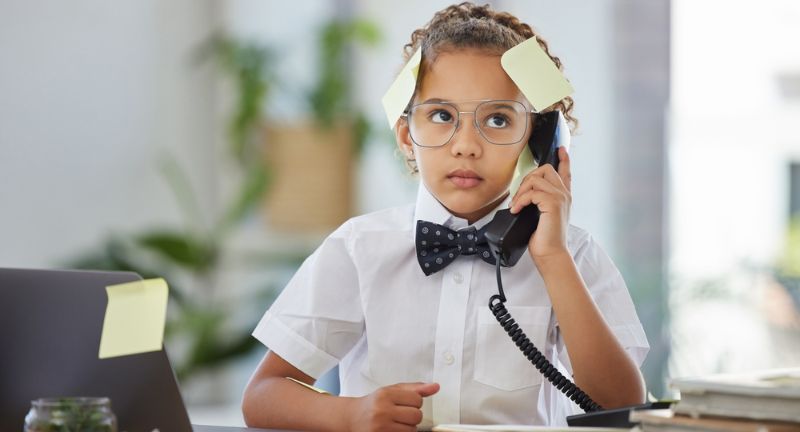
Shutterstock
Growing up today comes with unique challenges that previous generations never had to face. From the influence of technology and social media to concerns about mental health, kids navigate a complex world filled with new pressures and expectations. Many of these challenges reflect the rapid pace of change in society, requiring young people to adapt in ways that are often overwhelming. This list explores 25 of the most significant obstacles kids encounter in today’s world, highlighting just how much the landscape of childhood has evolved. By understanding these challenges, we can better support kids in navigating the path to adulthood.
Cyberbullying

Shutterstock
Cyberbullying is a form of harassment that follows kids into their homes, occurring through social media, texts, and online platforms. Unlike traditional bullying, it can happen at any time, making it harder to escape negative interactions. Messages or harmful comments spread quickly online, sometimes amplifying the effects and making it feel inescapable. This constant exposure can lead to anxiety, affecting their mental health and well-being.
Social Media Pressure

Shutterstock
Social media introduces kids to an endless feed of idealized images and experiences, creating pressure to meet unrealistic standards. The constant comparison to peers, celebrities, and influencers can impact kids’ self-esteem and body image. Many feel compelled to post curated aspects of their lives, leading to stress over gaining likes, comments, and followers. The need for validation online adds another layer of social pressure that didn’t exist in previous generations.
Fear of School Violence
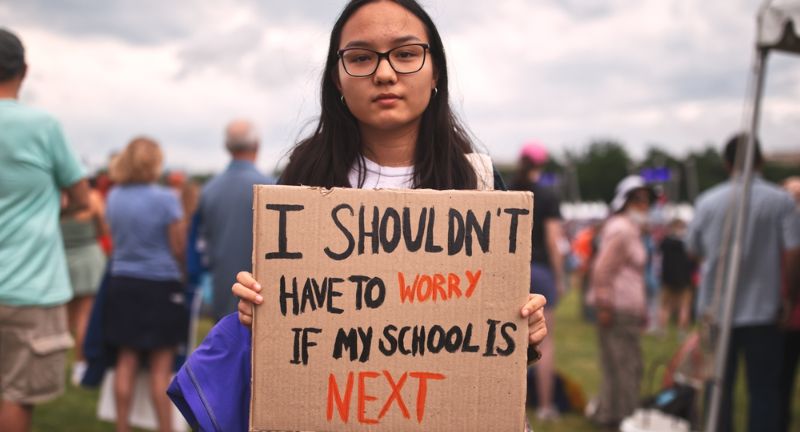
Shutterstock
The increase in school shootings has introduced a new level of fear for kids attending school, a place that should be a safe haven. Lockdown drills and active shooter discussions are now common, affecting their sense of security and mental well-being. Kids are more aware than ever of the potential dangers, leading to heightened anxiety and fear surrounding school environments. This level of concern for safety in school was largely unheard of in previous generations.
High Academic Pressure

Shutterstock
Today’s kids face greater academic pressure, with an emphasis on excelling in school to compete in college admissions and future job markets. Many students deal with heavy homework loads, demanding schedules, and expectations to perform well on standardized tests. To stand out, kids are often involved in multiple extracurricular activities, leaving little time for relaxation. This level of competition and pressure can lead to burnout and mental health challenges.
Exposure to Online Content

Shutterstock
With the internet at their fingertips, kids today are exposed to a vast range of content, including adult themes, violence, and misinformation. This level of access can shape their values and perceptions in ways that are difficult to control or monitor. For parents, filtering online content is challenging, leaving kids vulnerable to harmful influences. This unfiltered exposure is a new reality for today’s generation, affecting how they interpret and interact with the world around them.
Climate Anxiety
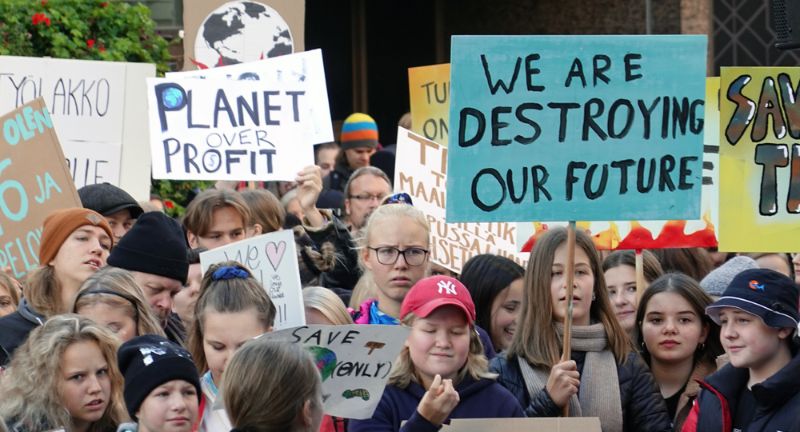
Shutterstock
Growing up in an era of climate change, kids today are more aware of environmental issues, often leading to climate-related anxiety. Many worry about the planet’s future and feel responsible for contributing to solutions, which can be overwhelming. They’re often exposed to distressing information about environmental degradation, making the topic of climate change a constant source of concern. This burden of responsibility is something kids today experience far more acutely than in the past.
Less Time Outdoors
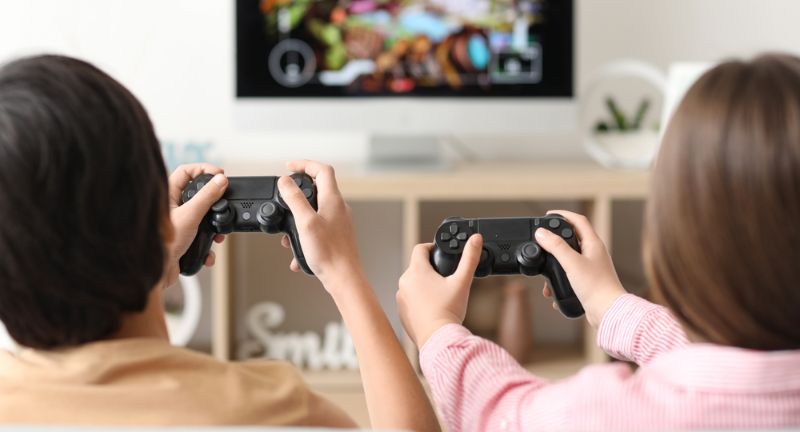
Shutterstock
With more structured schedules and increased screen time, kids today spend far less time outdoors compared to previous generations. Time spent in nature provides opportunities for creativity, physical activity, and stress relief, but these benefits are missed by many kids today. The shift indoors can impact social skills, physical health, and their connection to the natural world. Limited outdoor play affects both their physical and mental well-being, a growing concern in the digital age.
Digital Addiction

Shutterstock
Digital addiction is a growing problem, with kids spending hours on smartphones, tablets, and video games. This constant interaction with screens can impact sleep, focus, and overall well-being, sometimes becoming difficult to control. Many kids struggle to set limits on screen time, and the habit can be tough to break. The challenge of balancing digital use with other activities is a significant issue unique to the digital age.
Constant Connectivity
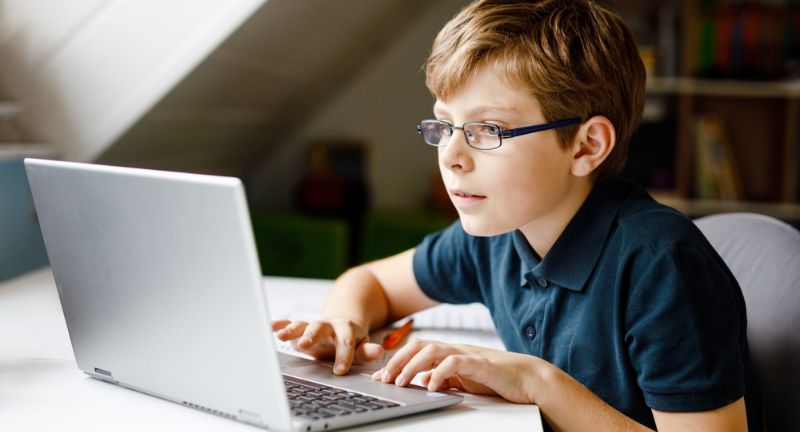
Shutterstock
The “always-on” nature of the internet and mobile devices means kids today are rarely offline, making it hard to disconnect and relax. Constant notifications and messages create a sense of urgency, even outside of school hours, contributing to anxiety. This expectation of availability impacts their ability to focus, sleep, and be present in the moment. Learning to set digital boundaries for a balanced life is an ongoing challenge for today’s youth.
Influence of Social Media Trends

Shutterstock
Social media trends and viral challenges can strongly influence kids’ behavior, sometimes encouraging risky or harmful actions. In their desire to fit in or gain attention, kids may participate in trends without fully understanding the consequences. The influence of these trends can be temporary, but the impact on their health or reputation may last longer. Today’s youth face the challenge of discerning what is safe and responsible in an ever-changing online landscape.
Body Image Issues

Shutterstock
The prevalence of edited images and beauty filters on social media creates unrealistic beauty standards that can negatively impact kids’ self-esteem. Constant exposure to idealized images can lead to body dissatisfaction and feelings of inadequacy from a young age. Many kids feel pressured to meet these unrealistic standards, often using filters to alter their own appearance. Navigating body image issues in an age of photo manipulation is a significant challenge for this generation.
Increased Awareness of Mental Health Issues

Shutterstock
While greater awareness of mental health is a positive shift, kids today are exposed to discussions of anxiety, depression, and other mental health issues at an early age. This can lead to self-reflection, but it may also create anxiety or worry about their own mental health. Kids may feel pressured to label normal emotions as signs of mental illness, adding to their stress. Balancing awareness with a healthy perspective on mental health is a unique challenge for today’s youth.
Access to Misinformation

Shutterstock
The internet provides kids with vast amounts of information, but not all of it is accurate or reliable. Misinformation can influence their opinions, beliefs, and even behaviors, leading to confusion or misguided decisions. Developing the skills to critically evaluate sources can be challenging for kids, especially when information appears credible. Learning to navigate misinformation and find trustworthy sources is essential for this generation’s growth.
Gender and Identity Exploration
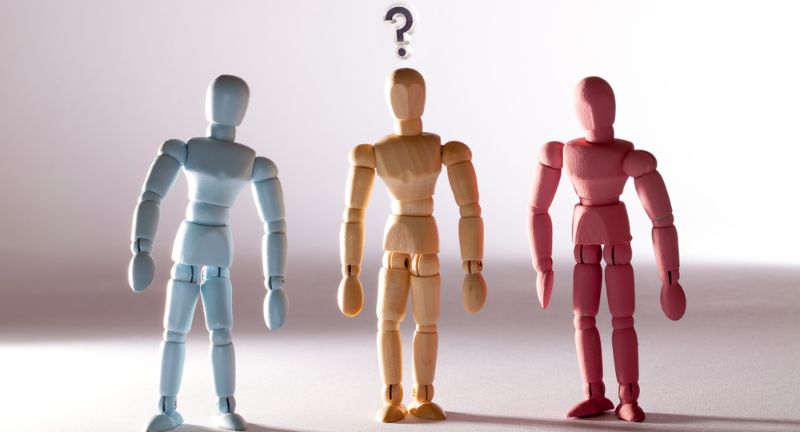
Shutterstock
Kids today are growing up in a society with broader discussions around gender identity, sexuality, and self-expression. While this openness can be empowering, it can also add pressure as kids explore their own identities in a very public way. Social media and online communities can offer support but may also expose them to judgment or criticism. Navigating personal identity in a world with diverse perspectives is a unique journey for this generation.
Health Risks of Sedentary Lifestyles

Shutterstock
With increased screen time, kids today face health risks associated with more sedentary lifestyles, such as obesity, poor posture, and reduced physical fitness. Time spent sitting indoors on devices often replaces outdoor play and physical activity. This shift can impact their energy levels, mental health, and overall well-being. Encouraging balanced physical activity and healthy habits is essential for today’s youth.
Limited Privacy

Shutterstock
Kids today grow up in a world where privacy is limited, especially online, with shared photos and personal information often lasting indefinitely. Their digital footprint can stay accessible for years, which may lead to regrets about what was shared publicly. This lack of privacy can make kids feel exposed or even vulnerable. Learning to make smart choices online and protect personal information is an important skill for this generation.
Career Pressure from a Young Age

Shutterstock
Kids today often feel career pressure early on, with expectations to plan for college, internships, and future career paths. This focus on future planning can create stress, especially for those uncertain about their interests. Balancing academics, extracurricular activities, and personal interests can be overwhelming. This early push to think about their future careers is a unique aspect of growing up in today’s competitive world.
Eco-Anxiety and Responsibility
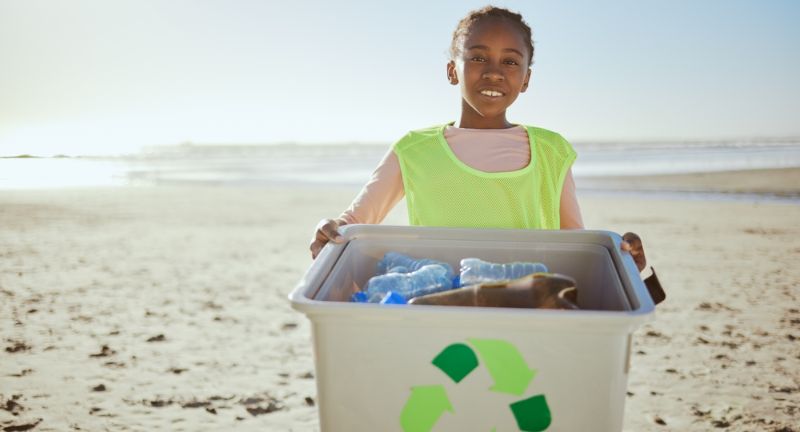
Shutterstock
Today’s kids are deeply aware of environmental issues and often feel a sense of responsibility to help combat climate change. This awareness can lead to eco-anxiety, with kids worrying about the planet’s future and feeling pressure to make sustainable choices. Everyday decisions, like reducing waste or conserving resources, can feel overwhelming at times. The responsibility of addressing environmental issues is a heavy burden for young minds today.
Parental Surveillance
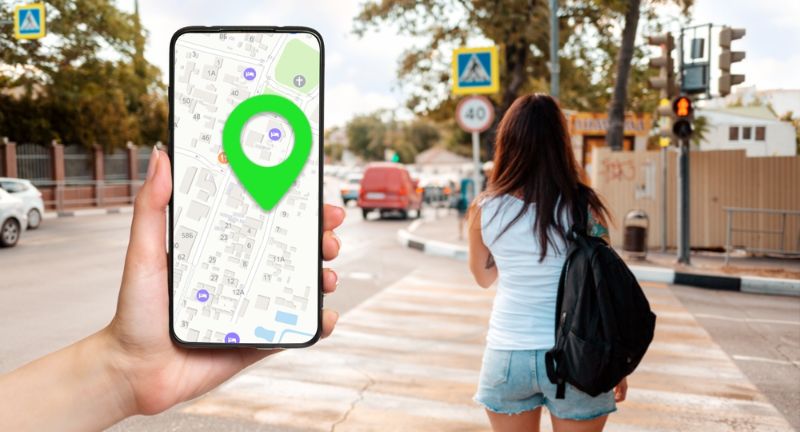
Shutterstock
Many parents use GPS tracking and monitoring apps to keep track of their kids’ locations and online activities, intended to ensure safety. While beneficial, this level of surveillance can make kids feel overly controlled or lacking independence. Today’s kids may struggle with feelings of limited freedom, affecting their sense of autonomy. Finding a balance between safety and personal freedom is a modern family challenge.
Fear of Missing Out (FOMO)
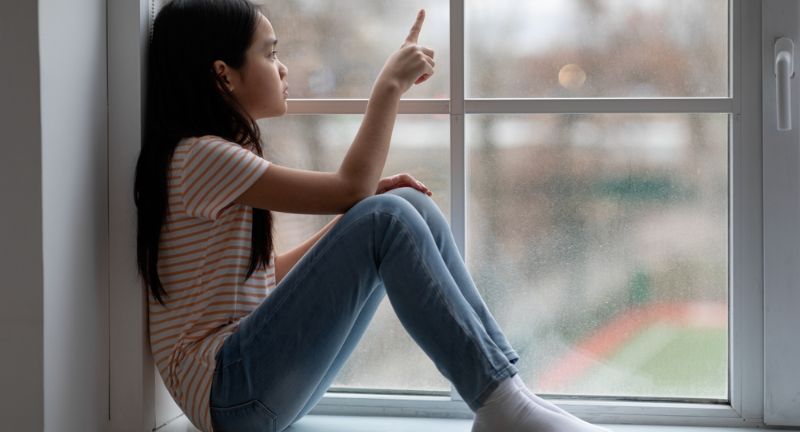
Shutterstock
Social media intensifies feelings of FOMO as kids see friends and influencers participating in events and activities they’re not part of. This awareness can lead to feelings of envy, insecurity, or sadness as they worry they’re missing out on experiences. FOMO creates pressure to fit in or keep up with others, sometimes sacrificing their own happiness. Learning to value personal experiences without comparison is a valuable skill for today’s youth.
Reduced Face-to-Face Communication
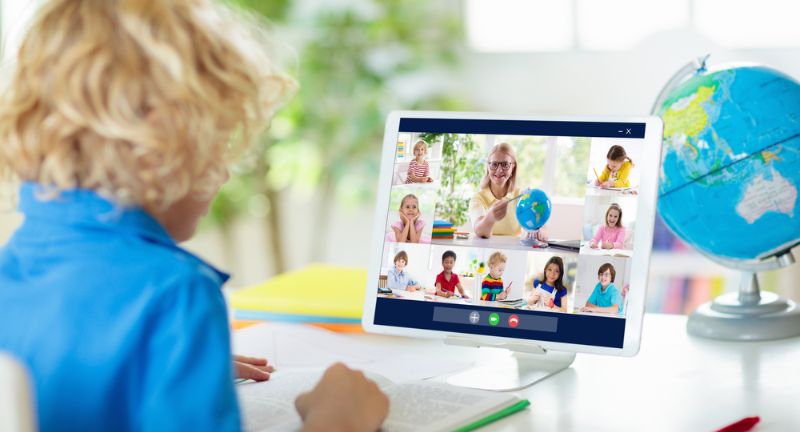
Shutterstock
Kids today rely heavily on digital communication, which can impact their social skills and reduce face-to-face interaction. Online communication often lacks the nuances of in-person conversations, making it harder to develop strong interpersonal skills. This reliance on screens can make real-life interactions feel awkward or uncomfortable. Building meaningful relationships in the digital age is a unique challenge for today’s generation.
Pressure to Conform

Shutterstock
Social media often pressures kids to conform to trends, appearances, or behaviors to fit in and gain approval. The need for validation online can lead to a loss of individuality, as kids feel compelled to follow what’s popular. This pressure to blend in can create an internal conflict between self-expression and social acceptance. Balancing individuality with the desire to fit in is a constant struggle for many kids.
Exposure to Tragedies and Global Events
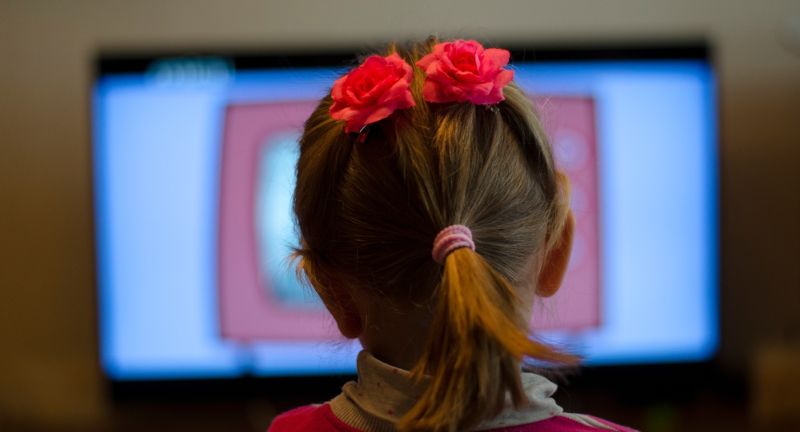
Shutterstock
Kids today are exposed to a constant stream of news about global tragedies, including natural disasters, conflicts, and pandemics. This exposure can lead to stress, worry, or even fear about world events beyond their control. With news readily available online, it’s harder for kids to filter out distressing content, impacting their sense of security. Processing these events in a healthy way is a unique challenge for young people today.
Expectation of Constant Availability
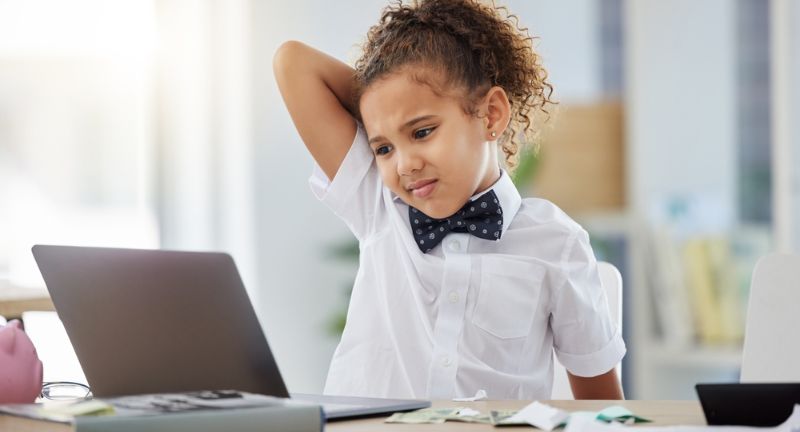
Shutterstock
Digital devices create an expectation of constant availability, making it hard for kids to enjoy downtime without messages or notifications. Friends and family members often expect immediate responses, adding stress and a sense of urgency. This constant communication can be exhausting, sometimes leading to burnout or anxiety. Learning to set boundaries around availability is essential for maintaining mental health in a connected world.
Economic Anxiety

Shutterstock
Growing up during times of economic uncertainty, kids today may worry about financial stability on both personal and global scales. Economic pressures on families can add stress as kids become aware of issues like job security, expenses, and the rising cost of living. This early awareness can lead to anxiety about their future and financial independence. Managing economic stress and building resilience are essential life skills for today’s youth.
Conclusion
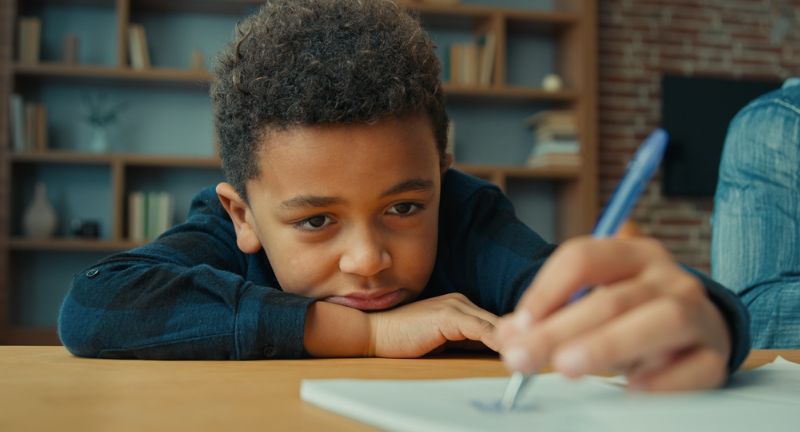
Shutterstock
The challenges kids face today are complex, reflecting the fast-paced changes in our world. From digital pressures to environmental concerns, each new obstacle calls for resilience, support, and guidance. As adults, it’s crucial to recognize these difficulties and provide kids with the tools they need to navigate them. By fostering open communication, emotional support, and healthy boundaries, we can help young people build the skills needed to thrive. Together, we can ensure that today’s kids grow up feeling understood, prepared, and empowered to face the future.



























































